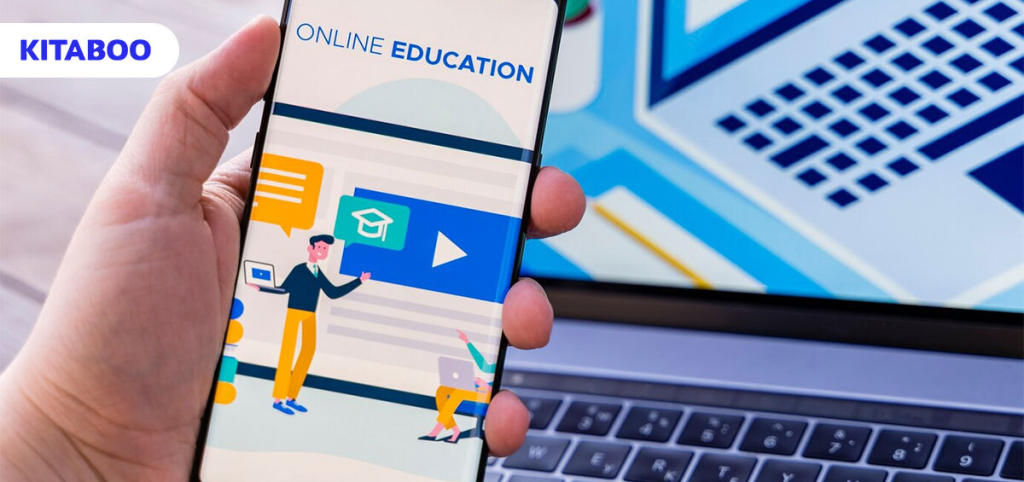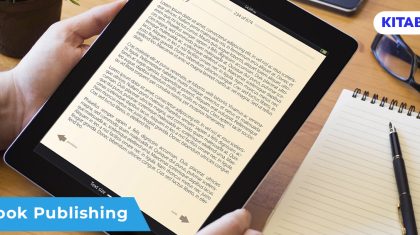
The Pros and Cons of Digital Textbooks and Instructional Materials
Amidst the ever-evolving terrain of publishing, choosing between hardcover and digital educational materials remains a pressing concern. The upward trajectory of digital books is evident, with the eBook market projected to exceed 1 billion users by 2027.
The undeniable surge in the appeal of digital content makes it an attractive tool for educators and organizations. However, its applicability is not without exceptions. While there’s no clear-cut answer, it’s essential to assess the advantages and disadvantages of digital texts thoroughly.
Explore: Digital Publishing Platform for Associations and Societies
As a publisher or educator, this analysis is crucial for understanding the implications of this evolving medium. To determine whether digital textbooks or instructional materials align with your forthcoming publishing endeavors, delve into our detailed examination below.
Table of Contents:
I. Pros of Digital Textbooks and Instructional Materials
- Enhanced Interactivity and Engagement
- Efficient Updates and Revisions
- Cost-Effectiveness and Accessibility
- Personalized Learning and Adaptive Instruction
II. Cons of Digital Textbooks and Instructional Materials
- Technological Dependency and Infrastructure Limitations
- Potential Health Implications and Distractions
- Copyright Infringement and Security Risks
- Pedagogical Adaptation and Training Requirements
III. Wrapping Up!
Pros of Digital Textbooks and Instructional Materials
1. Enhanced Interactivity and Engagement
Digital textbooks offer many interactive features that engage learners on multiple levels. With embedded multimedia content such as videos, simulations, and interactive quizzes, learners can actively participate in the learning process.
This heightened engagement fosters a deeper understanding of complex concepts and encourages a more comprehensive grasp of the subject matter.
When it comes to interactive and engaging content, KITABOO deserves a special mention. KITABOO, a leading digital textbook platform, offers diverse tools. These include multimedia integration, augmented reality, and an AI-powered assistant to enhance engagement and simplify the creation of educational materials and assessments.
2. Efficient Updates and Revisions
As a publisher, the capacity to swiftly update and revise digital textbooks is a significant advantage. Unlike printed materials, digital textbooks allow for real-time updates, enabling educators to provide students with the most current and relevant information.
This feature not only ensures accuracy but also encourages a dynamic and adaptable learning environment. It helps foster a flexible learning culture that reflects the rapid evolution of diverse academic disciplines.
This is particularly beneficial for fast-paced subjects that undergo frequent updates within short intervals.
3. Cost-Effectiveness and Accessibility
Digital textbooks often present a budget-friendly alternative to traditional printed materials. This, in turn, alleviates financial burdens for both educational institutions and students.
Additionally, the accessibility of digital textbooks transcends geographical boundaries. Students can access eBooks from anywhere, on any device. This feature ensures equitable access to educational resources for students worldwide.
There’s an added convenience of numerous textbooks fitting into a single tablet or phone. Plus, online textbooks are perpetually available when students require them.
Such inclusivity fosters a more diverse learning atmosphere, promoting equal opportunities for academic success.
4. Personalized Learning and Adaptive Instruction
With the integration of adaptive learning technologies, digital textbooks can cater to the individual learning needs of students.
Personalized learning algorithms allow educators to tailor instructional content based on each student’s strengths, weaknesses, and learning pace.
By providing customized learning experiences, digital textbooks facilitate a more personalized and effective approach to education. They help nurture a student-centric learning environment that fosters academic excellence.
For instance, you can leverage powerful tools like KITABOO Insight to monitor courseware consumption and adapt content to readers’ progress and interest. The tool provides in-depth, real-time analytics to improve and develop personalized content for your students.
Cons of Digital Textbooks and Instructional Materials
1. Technological Dependency and Infrastructure Limitations
A critical concern surrounding digital textbooks is the reliance on technological infrastructure. Some students lack the means to afford a dependable computer or iPad. Those without personal devices often rely on sharing with classmates or frequenting the library for access.
Insufficient access to reliable internet connectivity and appropriate devices may hinder students’ ability to engage with digital materials fully. This can impede their learning progress.
Additionally, technological malfunctions or system failures can disrupt the instructional journey, posing significant challenges for educators and students alike.
2. Potential Health Implications and Distractions
Extended screen time associated with digital textbooks can contribute to various health implications, including digital eye strain and fatigue.
Prolonged exposure to electronic devices may also affect students’ concentration and overall well-being. This can lead to decreased academic performance and potential long-term health concerns.
Moreover, the allure of digital distractions, such as social media and non-educational applications, can divert students’ attention from the intended learning objectives. This, in turn, can hamper their academic accomplishments.
3. Copyright Infringement and Security Risks
Digital textbooks are susceptible to copyright infringement and unauthorized distribution, which can compromise the integrity of the educational content.
The ease of duplicating and sharing digital materials raises concerns about intellectual property rights. This practice poses significant challenges for publishers and educators in safeguarding their work.
Additionally, the vulnerability of digital platforms to cyber security threats and data breaches necessitates robust security measures.
Here’s when digital textbook platforms like KITABOO come to your rescue. With DRM protection and AES 128-bit content encryption, the tool enables you to restrict access to the printing and copying of the content.
KITABOO’s secure cloud-based distribution solutions ensure that your content can be accessed with unique codes only. These measures help you protect sensitive educational information and uphold the integrity of the learning environment.
4. Pedagogical Adaptation and Training Requirements
Integrating digital textbooks into educational curricula necessitates comprehensive training for educators to leverage the available technological tools effectively.
Resistance to pedagogical adaptation and insufficient training may impede educators’ ability to harness the potential of digital textbooks fully. This limits the efficacy of the instructional materials.
It is crucial to address the disparity between technological proficiency and pedagogical expertise. This step is vital in facilitating a seamless transition to digital learning platforms and optimizing the educational experience for students.
Wrapping Up!
In conclusion, the diversity of learning methods underscores the absence of a definitive approach. Similarly, in educational publishing, no singular method prevails. Evaluating your goals and priorities as a publisher is prudent.
Online content offers significant advantages, expected to amplify with technological advancement. As a publisher or educator, comprehending the multifaceted dynamics of digital textbooks is imperative. It can help you make informed decisions regarding instructional material development and implementation.
Should you opt for an online approach, KITABOO can help you create commendable digital textbooks and instructional materials. Alternatively, our unified platform facilitates seamless deployment across print and digital mediums.
Connect with us to start a conversation.
To know more, write to us at contact@kitaboo.com.
Suggested Reads:
Discover how a mobile-first training platform can help your organization.
KITABOO is a cloud-based platform to create, deliver & track mobile-first interactive training content.



